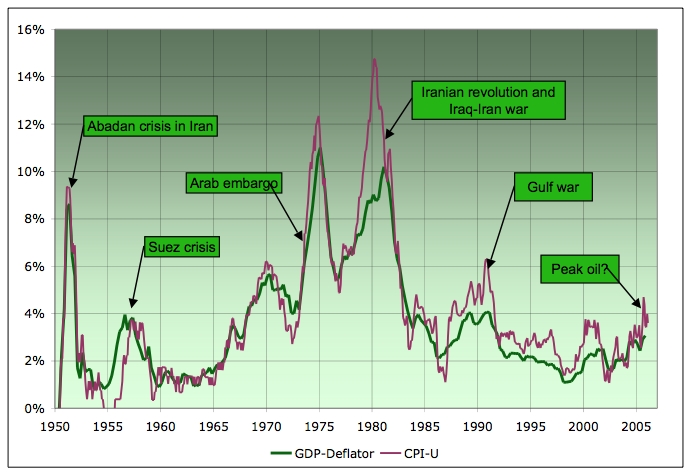Inflation would do it. But we've had a taste of that in the past, and nobody liked it. Writing in The New Yorker, James Surowiecki explains how it would work:
Right now, the U.S. economy has two fundamental, and interconnected, problems. First, consumers face huge debt left over from the borrowing spree of the past decade. Second, the dominant sentiment is caution—consumers are hesitant to spend, and businesses are hesitant to expand, invest, and hire.
If the Fed were to moderately raise its inflation target—currently around two per cent—and commit itself to keeping prices moving higher for the next couple of years, it could help change this dynamic. If people believe that prices are going to rise in the future, they may be less cautious about spending in the present, since money that isn’t put to work will lose value. And, because inflation erodes the real value of debts, people’s debt burdens would shrink.
Is this likely to happen? Surowiecki thinks not, for two reasons.
Central bankers are congenitally obsessed with the dangers of inflation and are more concerned with stable prices than with lost jobs. Also, the Fed, by its nature, looks after the interests of lenders, for whom inflation is generally bad news.
The author makes a case for inflation, but also notes that pure arithmetic isn't always the answer.But there’s a more basic reason, too: people really, really hate inflation. In polls, voters regularly cite high prices as one of their biggest concerns, even when inflation is low.
This intuitive prejudice against inflation may not be purely rational, but in normal times it’s beneficial: it encourages sober habits and discourages quick fixes. But, in times of crisis, other policies may succeed where pure rectitude can’t. After the Second World War, when the U.S. was struggling beneath a huge pile of debt, higher inflation helped shrink the real national debt to manageable proportions. And, in times when people are reluctant to take risks, a little inflation can help grease the skids. In doing this, though, inflation helps debtors and spenders at the expense of creditors and savers. It’s easy to see why this makes us uncomfortable. It seems to reward those who have behaved recklessly, and to punish those who played by the rules, saving their money and living frugally.He argues the other way, and he's worth a read.

No comments:
Post a Comment